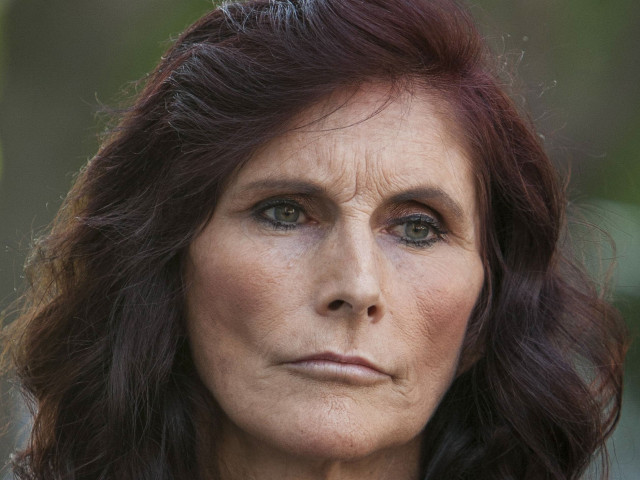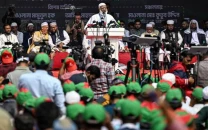US judge turns down actor's request to pull film from YouTube
Actor featured in anti-Islam film says director mislead her by calling it film a desert adventure.

Actor Cindy Lee Garcia, who said she had received death threats after the video was posted on YouTube, had sought to have the film removed in a suit against parent company Google Inc and a California man linked to the film.
"The request for a temporary restraining order is denied. The plaintiff has not shown a likelihood to prevail on the merits," Los Angeles Superior Court Judge Luis Lavin said.
On Wednesday, the actor who claimed she was defrauded by the producer of the anti-Islam movie that has spawned violent protests across the Muslim world, said she would seek a court order on the short film to be pulled down from YouTube.
Actor Cindy Lee Garcia has accused Nakoula Basseley Nakoula, the California man linked to the making of "The Innocence of Muslims," of fraud and slander.
Garcia also named Google Inc and its YouTube unit as defendants in the suit she filed on Wednesday. She said her right to privacy had been violated and her life endangered, among other allegations.
A Google spokesperson on Wednesday said the company was reviewing the complaint and would be at Thursday's court proceeding.
A representative for Nakoula's criminal attorney declined to comment on the lawsuit.
Garcia's is the first known civil lawsuit connected to the making of the video, which depicts the Prophet Mohammad as a womaniser and a fool, and which helped generate a torrent of violence across the Muslim world last week, the anniversary of the September 11 attacks on the United States.
The violence included an attack on US diplomatic facilities in Benghazi in which the US ambassador to Libya and three other Americans were killed. US and other foreign embassies were also stormed in cities in Asia, Africa and the Middle East by furious Muslims.
Garcia accused a producer of the movie, whom she identified as Nakoula and said he used the alias Sam Bacile, of duping her into appearing in a "hateful" film that she had been led to believe was a simple desert adventure movie.
"There was no mention of 'Mohammed' during filming or on set. There were no references made to religion nor was there any sexual content of which Ms Garcia was aware," the lawsuit said.
Garcia said the film, which has circulated online as a 13-minute trailer, had prompted her family to refuse to allow her to see or babysit her grandchildren, fearing for their safety.
The suit accuses Nakoula, Google and YouTube of invasion of privacy, unfair business practices, the use of Garcia's likeness without permission and intentional infliction of emotional distress.
US officials have said authorities were not investigating the film project itself and that even if it was inflammatory or led to violence, simply producing it cannot be considered a crime in the United States under the Constitution's guarantee of free speech.
But Nakoula, a Coptic Christian California man who pleaded guilty to bank fraud in 2010, was interviewed on Saturday by federal probation officers probing whether he violated the terms of his release while making the film.
Nakoula, who was released from prison in 2011, is prohibited from accessing the Web or assuming aliases without the approval of his probation officer, court records show. Violations could result in him being sent back to prison.



















COMMENTS
Comments are moderated and generally will be posted if they are on-topic and not abusive.
For more information, please see our Comments FAQ